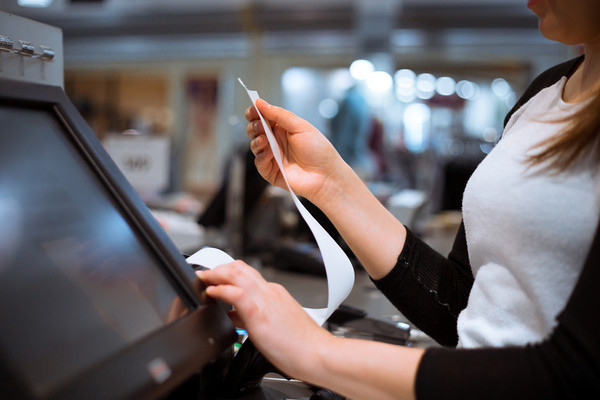Retail workers – predominantly women and teenagers – susceptible to reproductive effects of bisphenols

A group of organizations have launched a public campaign urging Canada’s leading grocery retail giants to stop using receipt paper coated with bisphenol-A (BPA) or bisphenol-S (BPS).
“With every transaction at the cash register, cashiers and customers across Canada are unknowingly exposed to a dose of hormone-disrupting BPA or BPS,” said Muhannad Malas, toxics program manager with Environmental Defence, one of the activist groups involved.
Along with Environmental Defence, the group includes UFCW Canada, Breast Cancer Action Quebec and Mind the Store. It is specifically targeting Costco Canada, Loblaws, Metro, Sobeys and Walmart Canada.
BPA was banned in baby bottles in Canada in 2010 after the government determined it was toxic. But workers’ exposure was not assessed, so it continues to be used in receipts and other thermal paper. Some retailers have removed it voluntarily, but replaced it with a closely related bisphenol substance such as BPS, which exhibits comparable effects to BPA, said the UFCW.
According to the Canadian Press, Loblaw Companies stopped using BPA receipts in 2012 and plans to transition away from bisphenol-coated receipts completely. It is currently testing alternatives.
"Workers need leadership from Canada's largest food retailers on this issue. Protecting the health and safety of thousands of cashiers and other retail workers can't wait for government action," said Derek Johnstone, special assistant to the UFCW Canada national president. "Canada's biggest food retail companies have the ability to protect workers and consumers from these hazards now, and they have an obligation to put health and safety first, especially if they are claiming to be socially responsible corporate actors."
Research recently published by Environmental Defence illustrated that cashiers are being exposed to BPA or BPS at potentially dangerous levels during a regular work shift. The study exposed the vulnerability of retail workers in Canada who are predominantly women and teenagers and are physiologically more susceptible to the reproductive and hormone-mimicking effects of bisphenols.
“The link between BPA exposure, particularly at low doses and breast cancer cell development and proliferation is one of the most studied issues in the health effects of toxic chemical exposures,” said Jennifer Beeman, executive director of Breast Cancer Action Quebec. “It is time for companies to act to protect the health of their workers by avoiding this toxic exposure, particularly when the majority of cashiers are women.”
Europe has banned BPA in receipts and Switzerland recently extended the ban to BPS.
The Canadian group is seeking to phase out BPA and BPS on receipts by 2020.





